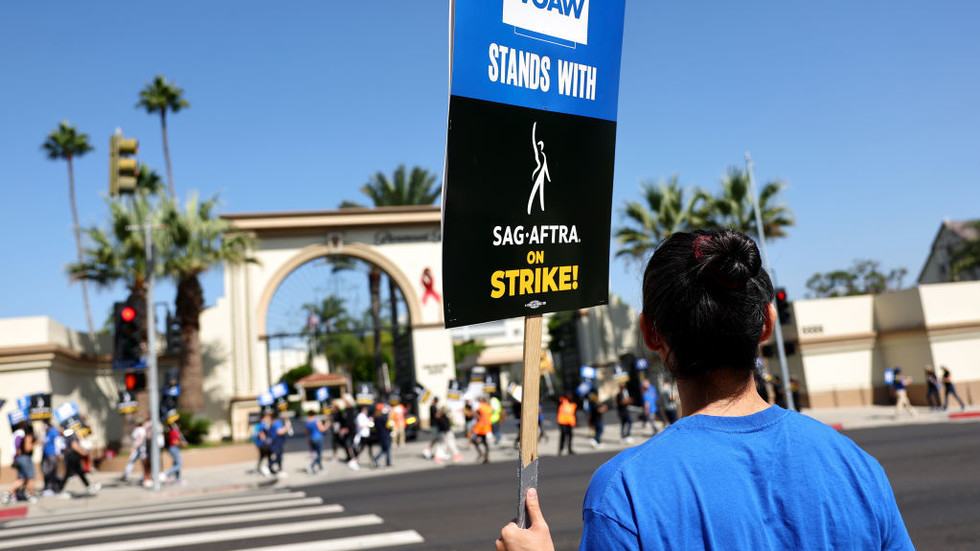
The American film industry has shed 7,000 positions in September alone, official data showed

© Getty Images / Mario Tama
The strike by script writers and actors in Hollywood has cost the US entertainment industry 45,000 jobs since May, according to an employment report published on Friday by the US Bureau of Labor Statistics.
Calculations showed that the country’s film and TV sector lost 7,000 jobs in September alone, after reporting 17,000 job losses in August.
The labor action was launched by Hollywood union the Writers’ Guild of America (WGA) on May 2 and was picked up in mid-July by the actors’ union, the Screen Actors Guild-American Federation of Television and Radio Artists (SAG-AFTRA). The unions were demanding higher pay, increased royalties, and formalization of the role of artificial intelligence in the motion-picture industry.
The strike prompted a shutdown of most Hollywood productions, and has reportedly cost the US economy some $5 billion as of early September, having affected not just the movie-making industry itself but also the many businesses that support it.
The WGA strike ended in late September, with the union successful in achieving many of its demands in a deal with the studios, including better regulations on the use of artificial intelligence, increases to minimum wage and pension, better health fund rates and residuals, etc.
The actors’ action is ongoing, with the sides having been unable to strike a deal at the latest negotiations on Friday. The talks are due to continue on Monday.
READ MORE: Hollywood strikes costing California economy billions – FT
Industry experts expect Hollywood productions to resume quickly once the SAG-AFTRA strike ends, and some have already returned to work after the writers’ guild stopped their action. However, analysts warn that it is unclear on whether the job losses in the sector that resulted from strikes will be permanent, and on what the consequences for the industry may be.
For more stories on economy & finance visit RT’s business section




